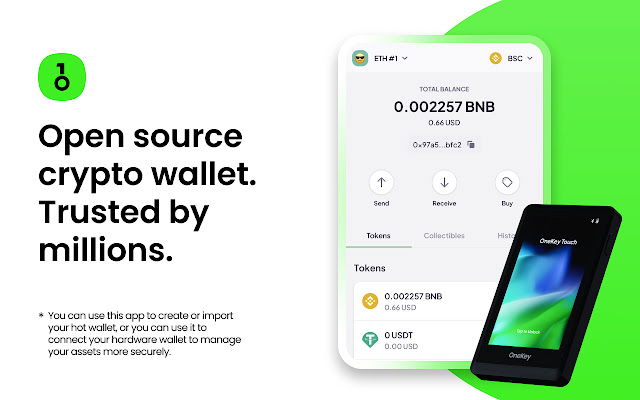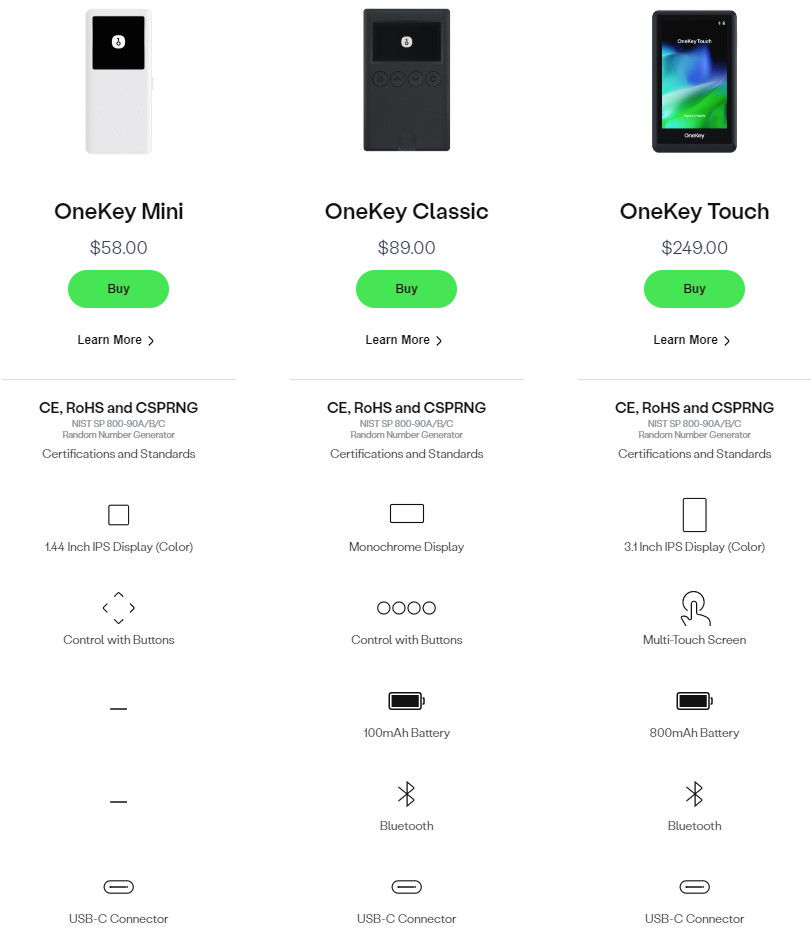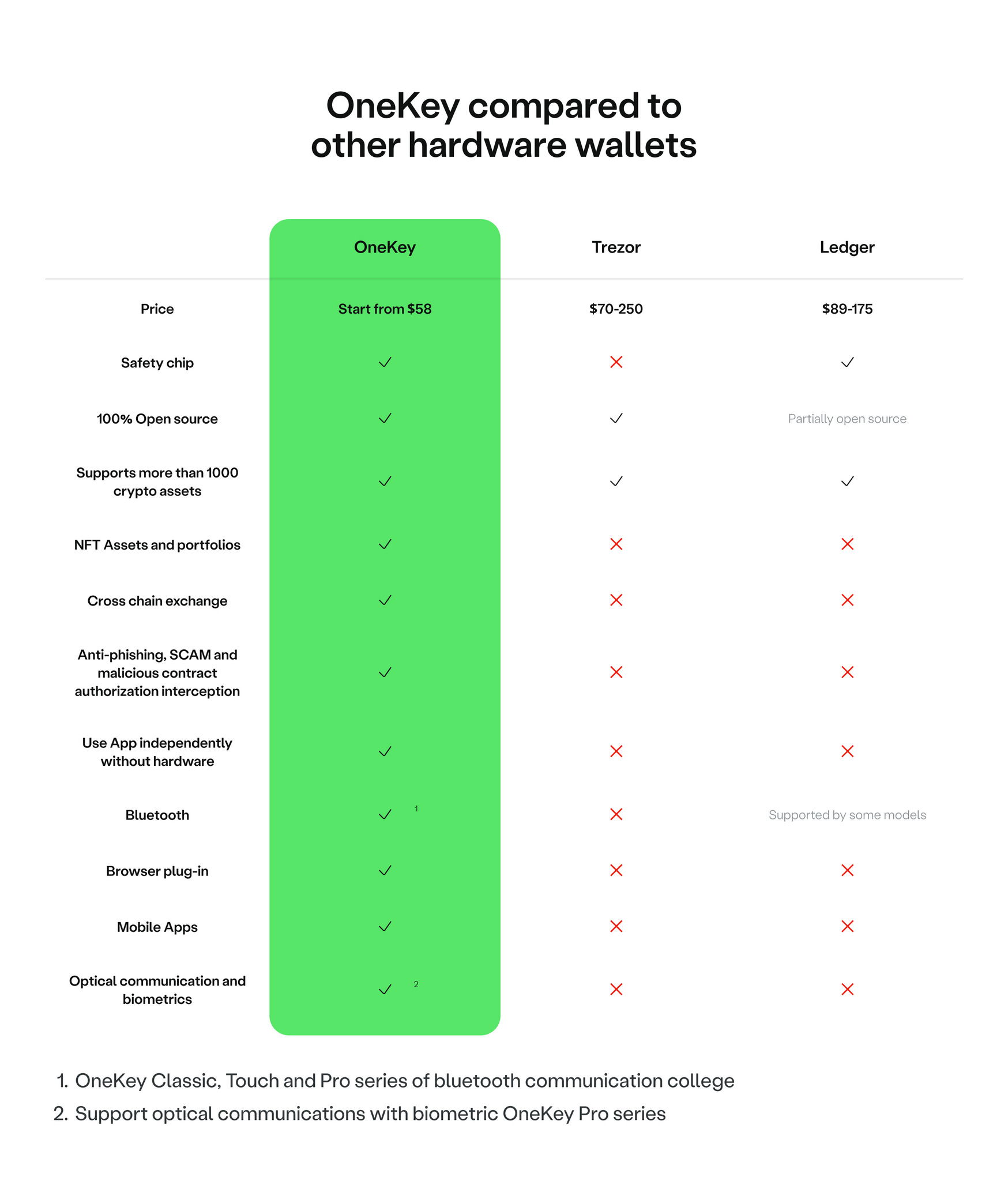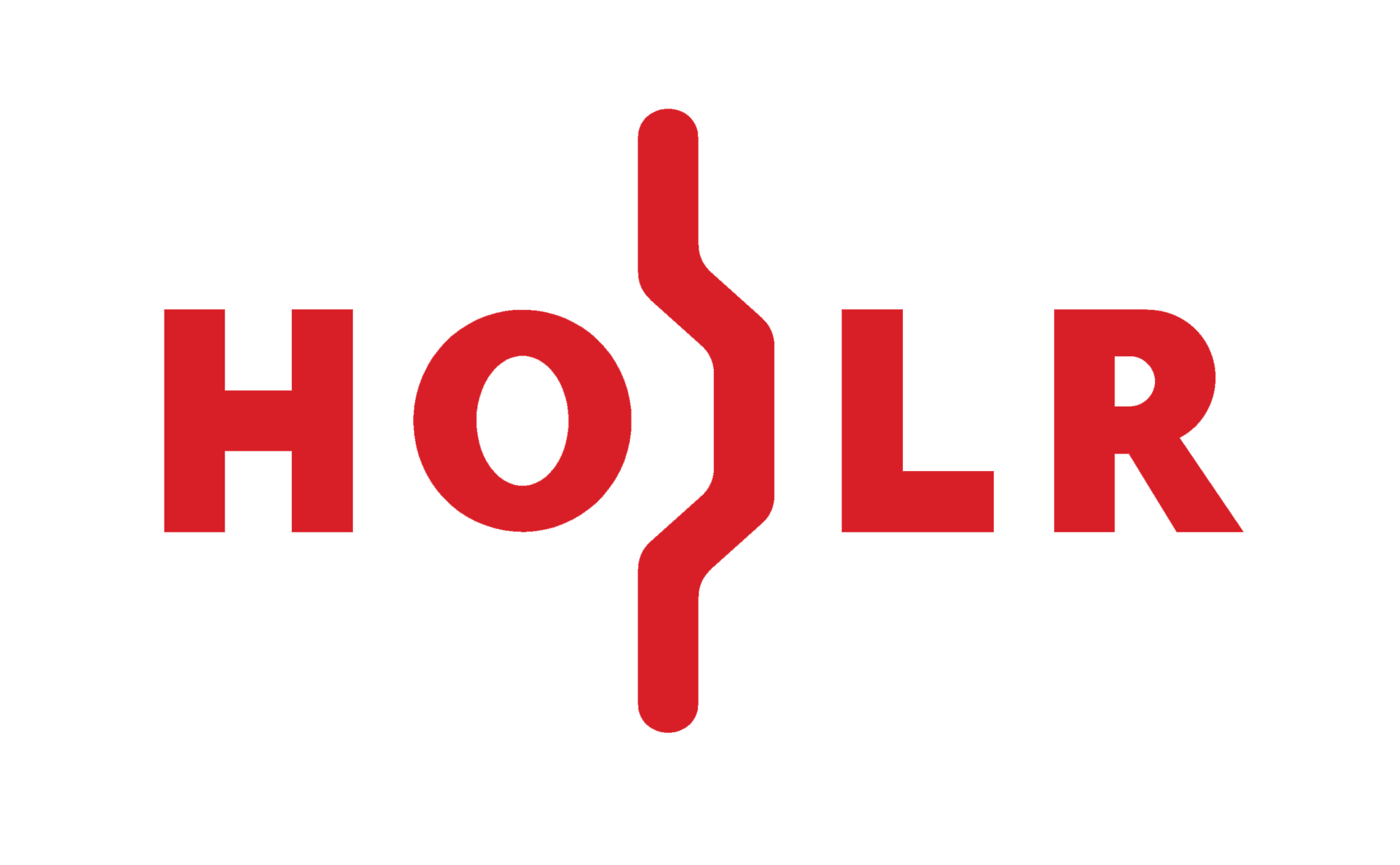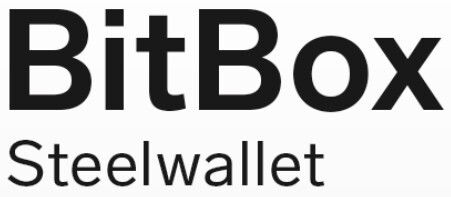The most popular open source hardware wallet in the USA, OneKey

In 2023, the OneKey hardware wallet reached the first sales positions in the United States.
Yes, this wallet has become a bestseller.
Why? Let's try to understand why this happened? Quality, Reliability, Safety. The best technology. The best and optimal parameter is "Price- Quality".
So, let's learn more about OneKey.
The wallet serves as a user portal into the blockchain ecosystem, a role akin to that of a browser in the realm of the internet. As the industry rapidly evolves, new use cases continue to proliferate, with emergent areas such as DeFi, NFTs, and cross-chain payments frequently making their presence felt. Wallets have transcended their original function of simply storing digital assets to becoming indispensable tools for blockchain users.
OneKey is a burgeoning hardware wallet, championing the cause of open-source and committed to eliminating single points of failure. Recently, it has witnessed a sharp uptick in sales within the Asian market.
Much like a browser within the internet world, a wallet serves as the gateway for users within the blockchain ecosystem. With the rapid development of the industry, new usage scenarios are emerging, giving rise to innovative sectors such as Decentralized Finance (DeFi), Non-Fungible Tokens (NFT), and cross-chain payments. A wallet now offers more than just storage for digital assets - it has become an indispensable tool for blockchain users.
What is OneKey?
OneKey is a rising hardware wallet. It advocates open-source solutions and is committed to avoiding single-point failures. Recently, it has witnessed swift sales growth in the Asian market.
As a key infrastructure within the industry, blockchain wallets are evolving along with the growth of the crypto market. With the expansion and improvement of mainstream blockchain network ecosystems, the functionality of wallet applications has broadened from the early simple payment transaction feature to encompass a broader range of application scenarios.
Among these, support for cross-chain operations has become a foundational feature of many wallet applications. These applications are gradually transforming into entrances to the blockchain ecosystem, with prominent multi-chain wallets including OneKey, Bitpie, imToken, and others.
Notably, OneKey has not only experienced rapid growth recently but also stands out in terms of quality among cross-chain wallet products.
From its inception, OneKey has been dedicated to creating a universal payment wallet within the blockchain industry. In response to the evolving needs of wallet applications in today’s blockchain networks, OneKey strives to provide extensive support and universal open-source solutions.
OneKey has launched various wallet products, including desktop wallets, plugin wallets, mobile wallets, and hardware wallets, effectively covering all types of wallet categories within the blockchain industry.
As a cross-chain wallet, OneKey supports thousands of cryptocurrencies, including BTC, ETH, DOT, USDT, and others, embodying the concept of universality.
In terms of system compatibility, OneKey not only supports all mainstream mobile and desktop operating systems but also offers plugin capabilities for all mainstream browsers. It supports virtually all platforms and is compatible with third-party platforms.
On the market front, OneKey’s hardware wallet topped the growth rate in sales in mainland China in 2021, with a customer satisfaction rate reaching 96.8% and zero security incidents reported.
Regarding main chain support, OneKey’s hardware wallet supports mainstream blockchain networks such as ETH, OKT, BSC, and HECO.
Finally, in software wallet compatibility, OneKey’s hardware wallet is compatible with most software wallets on the market.
Overall, OneKey has demonstrated comprehensive versatility in response to the new demands generated by the development of the blockchain, which is a significant reason for its rapid rise in recent years.
The Demand for Wallet Applications in the Blockchain Industry
In the realm of blockchain projects and digital assets, security takes precedence as the prime concern for on-chain wallets, followed by product features. Security is the bedrock, while features embody the soul of the product. The issue of security remains a fundamental aspect of wallet applications.
The blockchain industry consistently grapples with risks tied to security incidents, often resulting in substantial financial losses. As wallets serve as digital asset repositories, they frequently become the primary targets of theft attacks. A notable example is the Ethereum wallet Parity heist in July 2017, which resulted in a loss of 150,000 ETH.
Post-2020, with the blockchain industry witnessing a more diversified application boom, theft incidents have become more frequent and the sums involved more staggering.
Returning to the industry’s demand for wallet applications, each time a shocking security incident occurs, crypto users generally express doubts about the wallet applications, which are indispensable for digital asset transactions. As an essential infrastructure, crypto wallets cater to a wide audience. Almost every participant in the crypto market owns one or multiple wallet addresses.
Thus, securing information and funds remains the industry’s central demand for wallet applications — an utterly unavoidable issue. While numerous wallet applications have experienced theft, it’s not entirely due to the inherent traits of the applications themselves. These incidents often correlate with vulnerabilities present in the contracts upon which the applications are based. Nevertheless, for the average user, any event related to financial security is perceived as a problem inherent to the application itself.
While people often compare different wallet applications, users are typically most concerned about whether the wallet type is a cold wallet or a hot wallet.
Hot wallets, despite offering a convenient user experience, are often susceptible to phishing attacks and fraudulent links due to their need for constant internet connection. This is especially true for most hot wallets that use browser plug-ins for user interaction.
Cold wallets, on the other hand, are relatively safer due to their off-net characteristics, with the exception of use scenarios.
However, in the development of wallet applications, hot wallets remain the most prevalent product type, while the development of cold wallets is mostly driven by market demand arising from the ongoing exposure of financial security issues with hot wallets.
A survey on crypto wallets in the blockchain industry two years ago revealed that 80% of the most popular wallets in the market had security risks.
These include instances where user wallet operations are recorded, the wallet’s operating environment lacks security checks, transaction passwords don’t check for weak phrases, core function codes aren’t reinforced, and wallet apps have forgery vulnerabilities, among others.
Once these vulnerabilities are discovered and breached by hackers, users’ funds can be stolen. And due to the unique nature of crypto assets, the chances of recovery are exceedingly slim.
Indeed, many security issues ultimately boil down to user privacy concerns, underlining that the basic guarantee that crypto wallet applications need to offer is the protection of privacy and security.
As the blockchain industry has developed, from focusing initially on cryptocurrencies to later fostering a diverse ecosystem of applications based on various blockchain networks, crypto wallets have evolved from a single blockchain to encompassing multiple blockchains, and from simply transacting and storing to covering more application scenarios.
The industry’s demands have shaped the basic form of mainstream wallets, such as cross-chain support and compatibility with complex operating environments, but the core remains the enhancement of security and privacy protection.
The OneKey wallet takes this matter very seriously. The product adopts an open-source approach, with the code entirely publicly hosted on GitHub. From 3D source files to PCB circuit boards, and most importantly, the firmware source code, all can be found in the code repository.
OneKey uses a security chip and a generic chip to create a hardware wallet, ensuring the generation and storage of private keys are completely offline. The generation of private keys is a completely random set of numbers, which is unpredictable.
OneKey excels in satisfying the industry’s demand for wallet applications and demonstrates strong competitiveness compared to current mainstream wallet applications. Especially in recent years, it has rapidly expanded its user coverage in the Asian market, achieving significant growth.
Distinctive Features of OneKey
Blockchain cryptocurrency wallets are commonly known as cold and hot wallets by users, their differences primarily lying in data storage and verification methods, or more simply put, they vary in their dependency on the network.
Cold wallets are universally acknowledged as the safest means of storing cryptographic assets, among which hardware wallets are considered the optimum method given their security assurances. However, the quality of different hardware wallet technologies varies greatly, and products that balance security and usability are indeed few and far between.
OneKey is one such wallet, boasting the following features:
Cross-Chain Support
OneKey is a robust and powerful multi-chain blockchain hardware wallet, currently supporting and covering almost all mainstream blockchain networks. It provides full-platform support under terminal devices and Web2 operating environments, all of these features realized based on OneKey’s extensive support for cross-chain functionality across various blockchain networks.
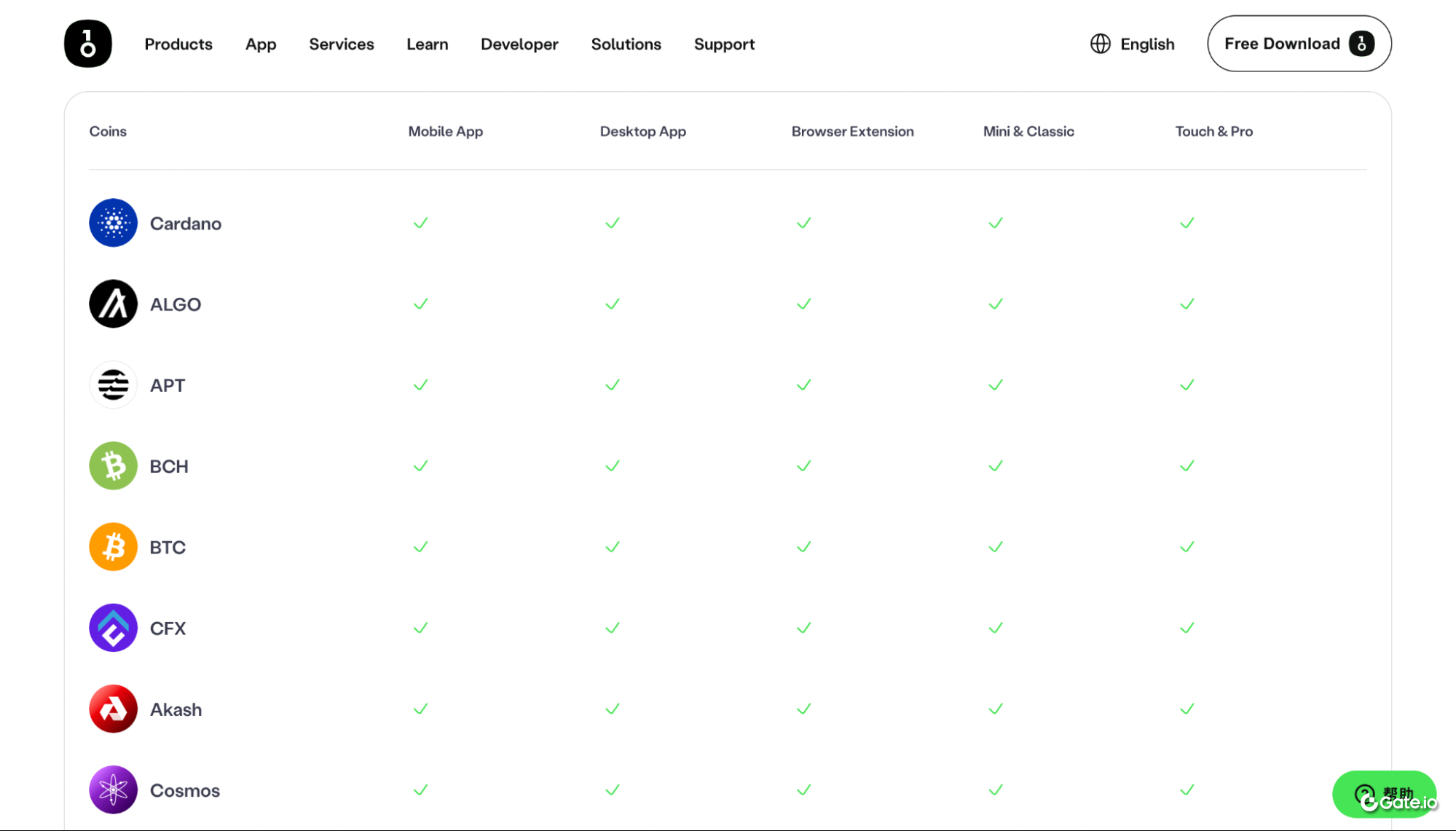
Open Source Application
Open source in wallet applications refers to publicizing product code for anyone to scrutinize. The strength of open-source projects lies in decentralized peer auditing, which helps uncover and fix bugs swiftly. Open-source is currently recognized as one of the most effective means of ensuring security in the blockchain industry, with BTC being the largest open-source project in the blockchain industry, its security has been time-tested.
Open-sourcing a wallet essentially serves as a self-vindication, assuring the world there are no backdoors left open, and self-theft is impossible.
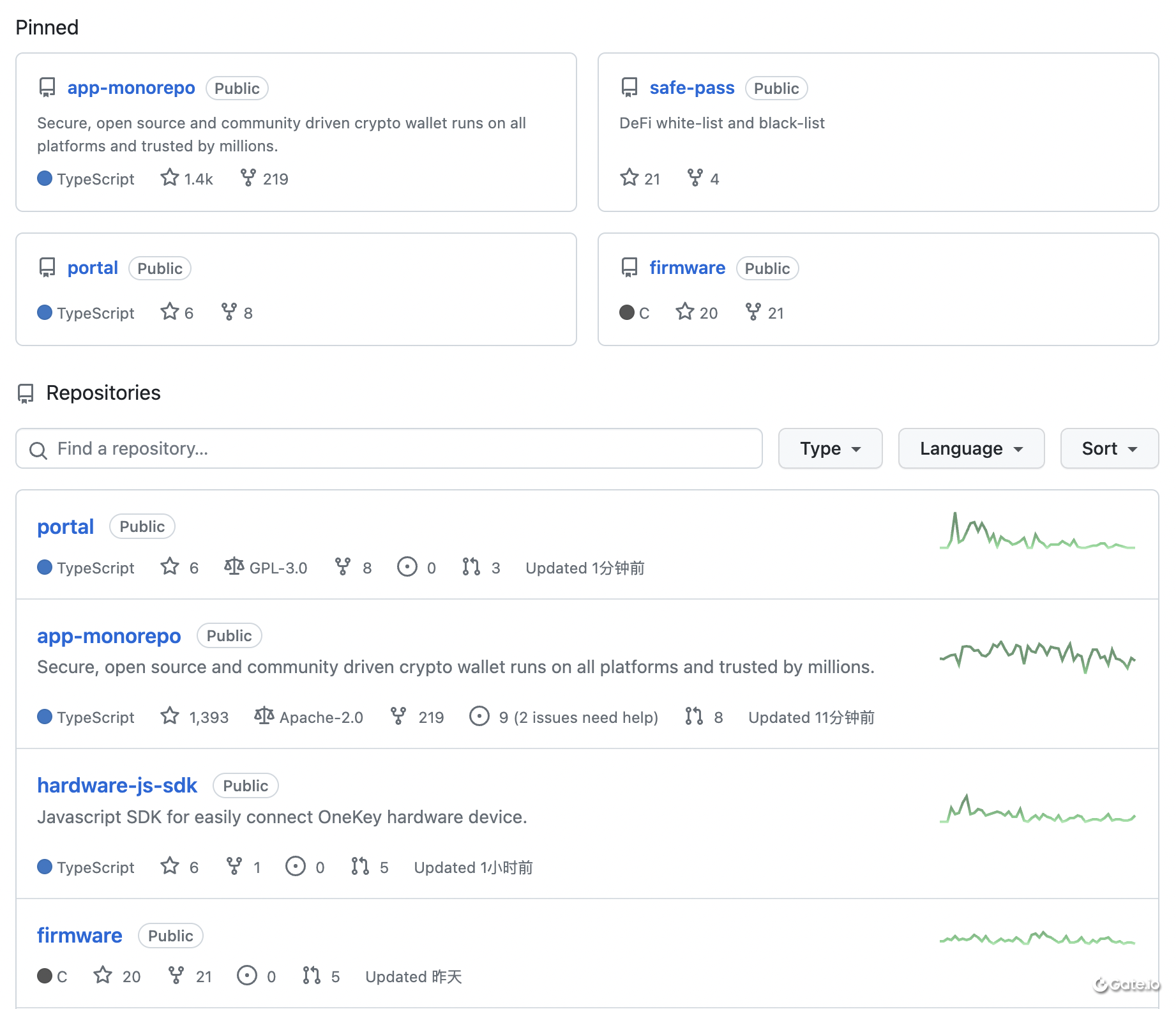
Privacy Protection
Users can manually change the settings for nodes, servers, blockchain explorers, etc., within the wallet, and preference data is stored locally. OneKey’s server does not store any private user data.
OneKey does not store or collect user mnemonics and seeds; these are solely stored locally, putting mnemonic (private key) and seed control solely in the hands of the user, ensuring absolute asset control within the wallet.
Secure and User-friendly
OneKey incorporates a professional security chip, the CC EAL 6+, to guarantee the safety of private keys. The most significant feature of the security chip is that it transforms the generation of private keys into a completely random string of numbers. Its unpredictability makes it virtually impossible to crack.
Furthermore, OneKey even provides a self-destruct seal function to avoid hardware wallets being switched during transit, ensuring that the received product is brand new.
OneKey hardware wallet also supports Bluetooth, USB, and NFC connections, making it extremely convenient to operate. Its entirely open-source software and hardware architecture is particularly beginner-friendly, and perfectly compatible with wallets such as MetaMask.
Combining a hardware wallet with a mobile wallet enhances security by physically isolating it from network attacks. Moreover, all transfer operations must be approved by the hardware wallet, meaning actions cannot be performed using mobile devices alone.
The Swift Development of OneKey
Having experienced rapid development since 2021, OneKey has not ceased to explore potential avenues for growth.
Discussing the domain of hardware wallets, in which OneKey is heavily invested, it’s impossible to overlook Ledger and Trezor, two notable competitors. Trezor, the world’s first hardware wallet, surprisingly didn’t adopt a secure chip solution, thereby leaving the potential for exploitation. Ledger, on the other hand, despite boasting a large user base, keeps its secure chip firmware closed-source, raising the risk of centralization.
Compared to Ledger and Trezor, OneKey has chosen a middle path. It maintains an open-source ethos while utilizing secure chips, making it arguably the most balanced hardware wallet available regarding overall experience and capabilities.
Globally, Ledger commands the largest share of the hardware wallet market, several times larger than OneKey. However, in its recent market expansion, OneKey has gained significant recognition among crypto users, primarily in Asia, and notably in China.
This is primarily due to the affordability of OneKey’s hardware wallet products, coupled with its expansive target market and large asset scale. In its early growth, OneKey relied heavily on KOL (Key Opinion Leaders) groups for product promotion. Blockchain company employees, keen on ensuring financial security, even spontaneously opted to become early users of OneKey.
All things considered, OneKey’s market performance over the past two years has been commendable. This success is built on the foundation of refining its user base with a product-centric approach, targeting users with actual hardware wallet needs and enabling them to convert. Encouraging users to spread and convert is the marketing strategy most adopted by OneKey.
Most blockchain wallet applications are tied to potential user scenarios. OneKey is working diligently on this front, too. In reality, compared to the entire blockchain wallet market, hardware wallets hold a smaller share. Their unique product features determine their distinct developmental path, hence why OneKey continually strives to enhance its product strength.
The benefits of comprehensive open-sourcing for a product are clear. The hacking attempt on OneKey by the security company Unciphered in February 2023 serves as an illustrative case.
Unciphered bypassed the hardware security mechanism in OneKey’s wallet and exploited a vulnerability to extract user private keys. A few hours later, the OneKey team issued a statement acknowledging the vulnerability and promptly issued a security patch, ensuring no users were affected.
OneKey eventually paid a bug bounty to Unciphered. This event piqued the interest of many crypto users.
Besides product security, in early 2022, OneKey raised around $20 million for product development and device production. Dragonfly and Ribbit Capital led its Series A financing. After an initial rapid market expansion, it completed a Series A+ funding round in February of this year with a valuation of $85 million, led by IOSG Ventures.
With the dual preparation of market and capital largely complete, OneKey has started demonstrating its pursuit of more diverse product features. In early April, the company announced that it would support the Ethereum Shapella network upgrade, with the upcoming version also supporting ETH staking withdrawal features.
In terms of product attributes and market performance, OneKey has achieved notable success since its debut. Going forward, it plans to explore various application directions in the blockchain wallet sector, further promoting the construction and perfection of this infrastructure.
The Evolution of Wallet Applications in the Blockchain Industry
- The evolution of blockchain technology over the past decade has inspired and generated a variety of applications, one of the most significant of which is the wallet application.
- Initially, in the blockchain world, cryptographic wallets were merely tools for storing, managing, and transferring digital assets. However, as the blockchain industry continually evolved, so did wallet applications, undergoing numerous phases of transition and growth. The driving force behind these developments lies in the industry’s pressing need for secure funds and user privacy protection. In response to these needs, various types of wallet applications with differing product emphases have sequentially emerged in the blockchain industry.
- Native Wallets: The earliest wallet applications were software-based local wallets. Users had to install specialized wallet software on their devices and generate one or more wallet addresses to store their digital assets. These wallets, typically managed and backed up by the users themselves, stored the private keys on the local device.
- Web Wallets: With the advent of the internet, wallet applications gradually shifted from local software to online web wallets. These wallets are typically hosted by third-party service providers. Users could create an account and password on a web page and access their wallets from anywhere via the internet. Users no longer needed to manage and back up their private keys, but they did need to trust the security and reliability of the third-party service provider.
- Mobile Wallets: The ubiquity of mobile internet ushered in the age of mobile wallet applications. These wallet applications, typically designed as mobile device apps, offer convenient user experiences and heightened flexibility. Users can manage and utilize their digital assets from anywhere at any time through their mobile devices, making payments, receiving and sending cryptocurrencies, and other operations.
- Hardware Wallets: To enhance the security of digital assets, hardware wallets were born. A hardware wallet is a physical device, similar to a USB device, used to store users’ private keys and authorize digital asset transactions offline. With heightened security, hardware wallets can fend off malicious software and network attacks and are widely used to safeguard large amounts of digital assets. OneKey is a product dedicated to the exploration and development of this field.
- Cross-chain Wallets: As the blockchain ecosystem continually expands, giving rise to many blockchain projects and an ever-growing variety of digital assets, cross-chain wallets have started to emerge. They support multiple different blockchain networks and various forms of digital assets. Such wallets can manage and utilize digital assets from multiple blockchains within a single application, offering users a more convenient management and transaction experience.
- Decentralized Wallets: Decentralized wallets, supported by blockchain technology, grant users full control over their private keys and self-management. Although their form seems to hark back to the simplicity of original wallets, there is a difference in the way information is stored compared to original wallets, but the underlying logic remains the same.
Conclusion
OneKey is a digital asset management tool with high security and cross-chain support, boasting a user-friendly interface and an array of additional features. It is highly suitable for users who wish to manage and trade digital assets securely.
Beyond the usual functions of a conventional wallet application, OneKey offers a plethora of extra features, such as asset management, market trend information, and transaction history lookup, making it convenient for users to manage and monitor their own assets.
Of course, it’s important to note that OneKey relies on hardware devices, as determined by its product characteristics. Therefore, users of OneKey need to understand and learn about the use of hardware wallets, as well as pertinent safety precautions.
Learn more about the best TOP 30 hardware cryptocurrency wallets
You can see this list here.
TOP 29 Hardware Wallets, the Official Online Stores
| 1 |  | Trezor hardware wallet, the official online store |  |
| 2 |  | Ledger hardware wallet, the official online store |  |
| 3 |  | KeepKey hardware wallet, the official online store |  |
| 4 |  | BitBox02 hardware wallet, the official online store |  |
| 5 |  | CoolWallet hardware wallet, the official online store |  |
| 6 |  | ELLIPAL hardware wallet, the official online store |  |
| 7 |  | D'CENT hardware wallet, the official online store. |  |
| 8 |  | SafePal hardware wallet, the official online store |  |
| 9 |  | SecuX hardware wallet, the official online store |  |
| 10 |  | BC Vault hardware wallet, the official online store |  |
| 11 | 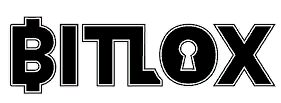 | BitLox hardware wallet, the official online store |  |
| 12 |  | Keystone hardware wallet, the official online store |  |
| 13 | 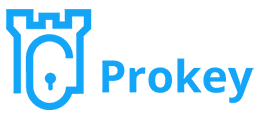 | ProKey hardware wallet, the official online store |  |
| 14 |  | NGRAVE hardware wallet, the official online store |  |
| 15 | 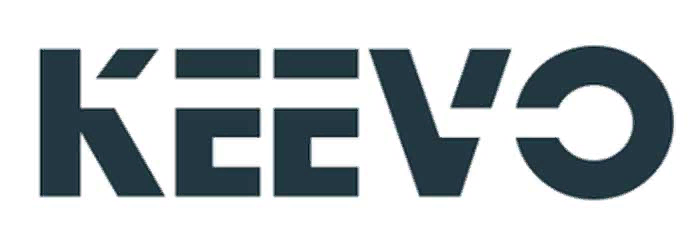 | Keevo hardware wallet, the official online store |  |
| 16 | 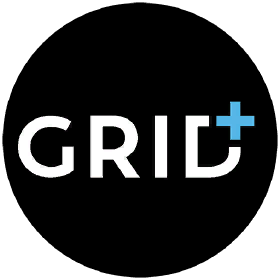 | GridPlus hardware wallet, the official online store |  |
| 17 |  | Ballet hardware wallet, the official online store |  |
| 18 | 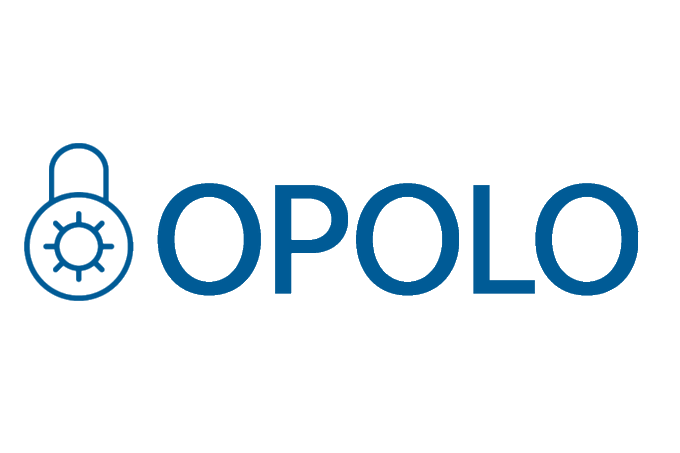 | OPOLO hardware wallet, the official online store |  |
| 19 |  | Foundation (Passport) hardware wallet, the official online store |  |
| 20 |  | ImKey hardware wallet, the official online store |  |
| 21 |  | Tangem hardware wallet, the official online store |  |
| 22 |  | HashWallet hardware wallet, the official online store |  |
| 23 |  | Material Bitcoin hardware wallet, the official online store |  |
| 24 |  | ShieldFolio hardware wallet, the official online store |  |
| 25 |  | OneKey hardware wallet, the official online store |  |
| 26 |  | Blockstream Jade hardware wallet, the official online store |  |
| 27 |  | Cypherock hardware wallet, the official online store |  |
| 28 |  | Keepser hardware wallet, the official online store |  |
| 29 | 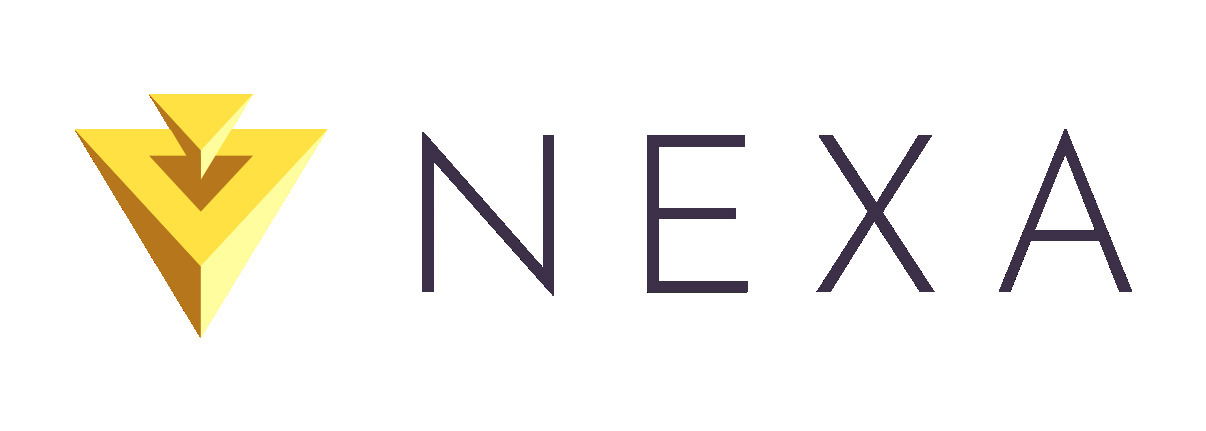 | NEXA hardware wallet, the official online store |  |

